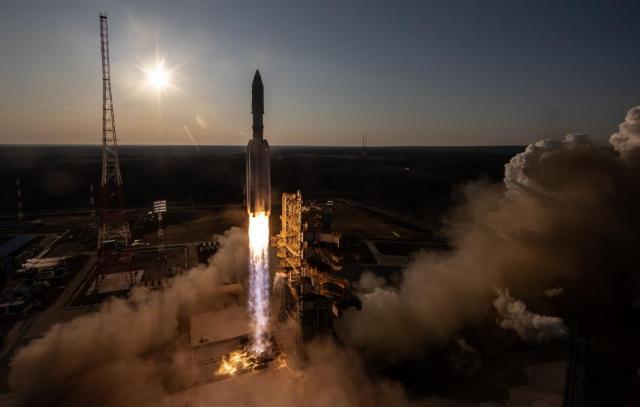On May 24, a two—day meeting of the heads of space agencies of the BRICS member countries, chaired by Russia, ended in Moscow. The participants spoke in favor of exclusively peaceful use of space. The meeting was held in a friendly atmosphere, the key theme of the two-day event was ensuring the safety of space activities. TASS cites the main statements of the heads of the space agencies of the BRICS countries
Safe space
The participants of the meeting talked a lot about security. The head of Roscosmos, Yuri Borisov, noted that almost all participants share Russia's concerns about ensuring the safety of space activities. "This is very important and will be a problem in the near future. It is better to solve this problem together," Borisov said.
In addition, he said that, taking into account the accession of new states to the BRICS, the total composition of the national orbital groupings of the countries of the association exceeded 1.2 thousand spacecraft.
Borisov also called on the BRICS countries to join the international system for ensuring the safety of space activities, which Russia plans to launch by the end of 2024. The system will be built on the basis of an open information platform — a software package for information exchange and monitoring of the situation in near-Earth space.
The software package, when all countries are connected to it, will be able to provide information exchange between all participants. Borisov also added that in the future, Roscosmos is considering options for expanding its functionality in terms of data exchange for remote sensing of the Earth (remote sensing) and other space services.
The BRICS Space Council
There was also a proposal to create a Space Council of the BRICS countries. The Russian side expressed support for the proposal, noting that the appearance of this body would help to bring positions closer at international space forums and jointly defend common interests.
Borisov believes that the Space Council of the BRICS countries should become an advisory body where it will be possible to carry out operational coordination of work on joint projects, taking into account the interests of the participants of the association.
Humbulani Mudau, Executive Director of the South African National Space Agency, also supported the initiative. "We see the Russian proposal to create the BRICS Space Council. We will develop our cooperation in this direction, South Africa supports this initiative," Mudau said.
Relations with China
During the meeting, the issue of lunar exploration was considered. The head of the Chinese National Space Administration (CNSA), Zhang Kejian, outlined the need to expand international cooperation on this issue. He invited the countries to join the Russian-Chinese project to create an international scientific lunar station.
Zhang Kejian
Head of the Chinese National Space Administration (CNSA)
The head of CNSA expressed China's readiness to contribute to the development of the BRICS satellite constellation at a higher level, expand the resources of the grouping of the association and cooperate with other countries in this direction.
Borisov stressed that Russia has strengthened relations with China. "Our relations with China are very constructive and dynamic today, which pleases both the Chinese side and us. We will continue in this direction," Borisov said.
Brazil, Ethiopia and the UAE
Borisov also noted the fruitful negotiations with Brazil: representatives of the country will visit leading Russian enterprises at the invitation of Roscosmos.
The head of Roscosmos outlined broad prospects for cooperation with Ethiopia, which joined the BRICS.
"We will sign memoranda in the near future and develop a roadmap on all issues of interest," the head of the state corporation stressed.
The topic of prospects for cooperation with Russia was also discussed in a number of other speeches by foreign participants. Program Director of the Asteroid Exploration Mission (Emirates Mission to the Asteroid Belt, EMA) Mohsen Al-Awadi from the UAE called the Russian contribution to the development of space inspiring. "We will be glad to cooperate not only within the framework of our partnership, but we also see unlimited potential for new initiatives. Together we are moving forward into the future, where our common resources will provide opportunities to reach new horizons," Al-Awadi said.

